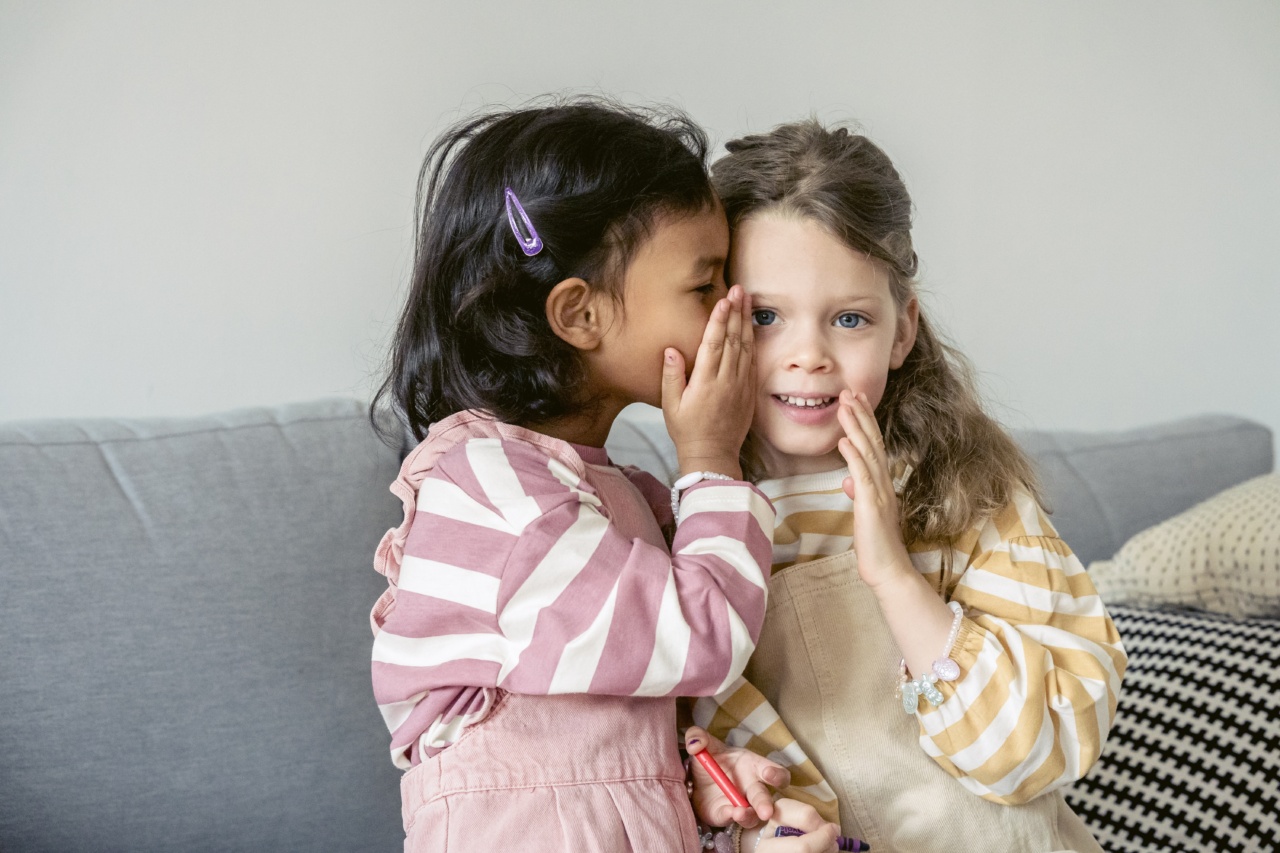As a parent, it’s natural to be concerned about your child’s relationships. Friendships have a significant impact on children’s emotional and social development.
While it’s important to let your child explore and make their own friends, it is also crucial to ensure that these connections are healthy and positive. Here are some signs to help you determine if your child’s friendship is healthy or not.
1. Mutual Respect
In a healthy friendship, both children respect each other’s opinions, boundaries, and individuality. They listen to one another and value each other’s thoughts and feelings.
If your child’s friend consistently disregards their boundaries or belittles their opinions, it may be a sign of an unhealthy friendship.
2. Trust and Honesty
A healthy friendship is built on trust and honesty. Children should be able to confide in each other without the fear of judgment or betrayal.
If your child’s friend frequently lies or manipulates them, it is essential to address this issue and consider the impact it might have on your child’s well-being.
3. Empathy and Support
True friends understand and appreciate each other’s emotions. They offer support during difficult times and celebrate each other’s successes.
If your child’s friend consistently shows lack of empathy or undermines their achievements, it might signify an unhealthy friendship.
4. Communication and Conflict Resolution
Healthy friendships involve open and effective communication, as well as the ability to resolve conflicts peacefully.
If your child’s friend fails to communicate honestly or frequently resorts to aggression or manipulation during disagreements, it may be a sign of an unhealthy friendship.
5. Equal Balance
A healthy friendship should be balanced in terms of give and take. Both children should contribute equally to the relationship, supporting and being there for each other.
If your child’s friend consistently takes advantage of their kindness or only focuses on their own needs, it might indicate an unhealthy friendship.
6. Shared Interests and Activities
While it’s not necessary for children to have identical interests, a healthy friendship often involves shared activities or hobbies that both children enjoy. This common ground provides opportunities for bonding and creating lasting memories.
7. Positive Influence
Healthy friendships should have a positive influence on your child’s behavior and well-being.
If you notice your child engaging in negative or risky behaviors after spending time with their friend, it is important to address these concerns and explore the reasons behind the change.
8. Encouragement and Individual Growth
A good friend encourages personal growth and supports each other’s goals and aspirations. They motivate your child to strive for their best and help them overcome obstacles.
If your child’s friend consistently undermines their dreams or discourages their ambitions, it may indicate an unhealthy friendship.
9. Time Apart
In a healthy friendship, children understand the importance of spending time apart. They are comfortable with pursuing individual interests and maintaining other friendships outside of their relationship.
If your child’s friend becomes possessive or isolates them from other friends and activities, it might be a sign of an unhealthy attachment.
10. Parental Concerns
As a parent, you may have intuition or concerns about your child’s friendship that cannot be easily explained. It’s crucial to trust your instincts and observe the dynamics between your child and their friend.
If something feels off or raises red flags for you, it’s important to address the situation and have an open conversation with your child.
Conclusion
Friendships play a significant role in your child’s growth and development.
While it is important to let your child cultivate their friendships independently, being vigilant and observant can help ensure that these relationships are healthy and beneficial. By recognizing the signs of a healthy friendship, you can guide your child towards positive and supportive relationships that contribute to their well-being and happiness.






























